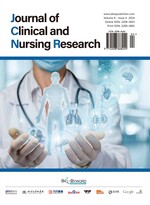Abstract
Objective: To validate the effectiveness of a Family-Centered Empowerment Model (FCEM) health education through WeChat on medication compliance and blood pressure among elderly hypertensive patients in rural areas. Methods: One hundred and two rural elderly hypertensive patients aged 65–80 years were selected and randomly divided into an experimental and control group of 51 each. The control group implemented conventional health education, and the experimental group implemented FCEM health education through WeChat platform for 4 consecutive weeks. The Therapeutic Adherence Scale for Hypertensive Patients (TASHP) scores and blood pressure measurements were compared between and within the two groups. Results: After the intervention, there were significant differences in medication compliance and blood pressure between the two groups (P < 0.001). In the control group, before and after the intervention, there was a significant difference in medication compliance (P < 0.001), but no significant difference in blood pressure (P > 0.05). In the experimental group, there were significant differences in medication compliance and blood pressure before and after the intervention (P < 0.001). Conclusion: The FCEM health education through an online social platform significantly improved medication compliance and led to effective blood pressure control in rural elderly hypertensive patients. Therefore, as an effective, safe, and economical model, it is also necessary to explore its effectiveness in improving health problems in other chronic diseases and other age groups.
References
Chinese Society of Geriatrics, Hypertension Branch, Beijing Hypertension Prevention and Control Association, and National Clinical Medical Research Center for Geriatric Diseases (General Hospital of the Chinese People’s Liberation Army, Xuanwu Hospital of Capital Medical University), Chinese Guidelines for the Management of Hypertension in the Elderly. Chinese Journal of Hypertension 2023(6): 508–538.
Li H, Chen X, Hu X, et al., 2022, Hypertensive Medication Situation and Influencing Factors Among Elderly in Henan. Modern Preventive Medicine, 49(7): 1264–1268.
Woodham N, Taneepanichskul S, Somrongthong R, 2018, Medication Adherence and Associated Factors Among Elderly Hypertension Patients with Uncontrolled Blood Pressure in Rural Areas, Northeast Thailand. Journal of Health Research, 32(6): 449–458.
Chen X, Yan Q, Wu F, et al., 2022, Medication Compliance of Patients with Hypertension and Related Key Factors in Communities, Shanghai. Modern Preventive Medicine, 49(1): 72–76.
Xu Y, Zhang R, Zou J, et al., 2022, Study on Medication Compliance of Elderly Hypertensive Patients in Rural Anqing. Journal of Shandong First Medical University and Shandong Academy of Medical Sciences, 43(3): 230–234.
Zhou Y, 2018, Construction of a Prediction Model for Medication Adherence in Patients with Coronary Heart Disease, thesis, Hebei University, China.
Lee E, Poon P, Yip B, et al., 2022, Global Burden, Regional Differences, Trends, and Health Consequences of Medication Nonadherence for Hypertension During 2010 to 2020: A Meta-Analysis Involving 27 Million Patients. Journal of the American Heart Association, 11(17): e026582.
Zhu Y, 2018, Logistic Regression Analysis of Medication Adherence and Its Influencing Factors Among Elderly Hypertensive Patients in The Community. China Primary Health Care, 32(1): 53–55.
Zhang M, Liu Y, Zhang W, et al., 2010, Advances in Clinical Nursing Application Research on Family Empowerment. Journal of Nursing, 27(21): 19–22.
Alhani F, Asghari-Jafarabadi M, Norouzadeh R, 2022, The Effect of Family-Centered Empowerment Model on The Quality of Life of Adults with Chronic Diseases: An Updated Systematic Review and Meta-Analysis. Journal of Affective Disorders, 316: 140–147.
Shoghi M, Shahbazi B, Seyedfatemi N, 2019, The Effect of the Family-Centered Empowerment Model (FCEM) on the Care Burden of the Parents of Children Diagnosed with Cancer. Asian Pacific Journal of Cancer Prevention: APJCP, 20(6): 1757–1764.
Tang H, Zhu J, He H, 2011, Development and Evaluation of A New Therapeutic Adherence Scale for Hypertensive Patients. Journal of Third Military Medical University, 33(13): 1400–1403.
Song W, Zhang J, Gong P, et al., 2021, Influence of WeChat Technology on Education in Rational Drug Use and Medication Compliance in Community-Dwelling Elderly Hypertensive Patients. Chinese Journal of Geriatric Multiorgan Diseases, 20(11): 852–855.
Keshvari M, Hedayati B, Moeini M, et al., 2015, A Survey on The Effect of Implementation of A Family- Centered Empowerment Model on Blood Pressure and Empowerment Dimensions in The Elderly People with Hypertension. Journal of Education and Health Promotion, 4: 94.
Shi L, 2022, Application Effects of Health Belief Model-Based Health Education in Community Patients with Essential Hypertension. Chinese National Health Medicine, 34(13): 163–166.
Lu J, Chen L, Yang Y, 2020, Research Progress of Family-Centered Intervention Model in Improving Medication Compliance of Patients with Essential Hypertension in Underdeveloped Areas. Evidence-Based Nursing, 6(5): 408– 411.
Hamedani MA, Salar A, Kermansaravi F, 2021, Effect of Family-centered Empowerment Model on Quality of Life of Patients with Hypertension. Medical - Surgical Nursing Journal, 10(1): e117259.
Mohalli F, Mahmoudirad GH, Alhani F, et al., 2019, The Effect of Family-Centered Empowerment Model on The Indicators of The Ability of Patients with Hypertension. IJNR, 13(5): 8–14.
Ozoemena EL, Iweama CN, Agbaje OS, et al., 2019, Effects of a Health Education Intervention on Hypertension- Related Knowledge, Prevention and Self-Care Practices in Nigerian Retirees: A Quasi-Experimental Study. Archives of Public Health, 77: 23.
